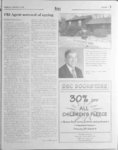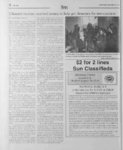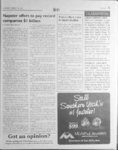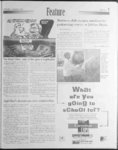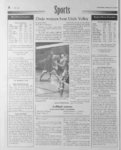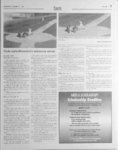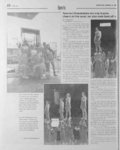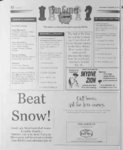Dixie State University Student Newspapers | 2001-02-28 | Page 3
| Type | issue |
| Date | 2001-02-28 |
| Paper | Dixie State University Student Newspapers |
| Language | eng |
| City | St. George |
| County | Washington |
| Category | School |
| Rights | In Copyright (InC) |
| Rights Holder | Utah Tech University, St. George, Utah |
| Publisher | Digitized by J. Willard Marriott Library, University of Utah |
| ARK | ark:/87278/s6h18nr8 |
| Reference URL | https://newspapers.lib.utah.edu/ark:/87278/s6h18nr8 |
Page Metadata
| Type | page |
| Date | 2001-02-28 |
| Paper | Dixie State University Student Newspapers |
| Language | eng |
| City | St. George |
| County | Washington |
| Category | School |
| Page | 3 |
| Reference URL | https://newspapers.lib.utah.edu/ark:/87278/s6h18nr8/29450692 |


